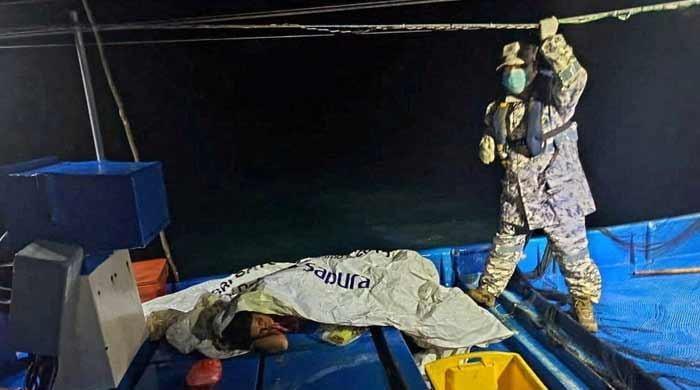Malaysian authorities recovered at least seven bodies after a boat carrying migrants capsized near the Thai border, a maritime agency official said Sunday.
Authorities believe the ship was carrying undocumented migrants who left Myanmar, part of a group of at least 300 people that had divided into several boats.
The boat that capsized near Thailand’s Tarutao Island and just north of the Malaysian resort island of Langkawi was carrying about 90 people, Kedah state police chief Adzli Abu Shah told Malaysian media.
Romli Mustafa, director of the Malaysian Maritime Enforcement Agency in the northern states of Kedah and Perlis, said in a statement that three survivors were found in the waters around Langkawi on Sunday, as well as six bodies, bringing the total death toll to seven.
At least 13 people have been rescued alive.
Romli said the bodies recovered on Sunday were those of a girl and five women, without revealing their nationality or ethnicity.
The body found Saturday is believed to be that of a woman from Myanmar’s persecuted Rohingya minority, Adzli told the Bernama national news agency.
Search and rescue efforts ended that day and will resume on Monday, Romli added, saying it was possible to find more survivors or victims at sea.
The ship probably sank three days ago, according to the state police chief.
Two other boats, believed to be carrying part of the group of 300 migrants who had left Myanmar, have also been reported missing, Free Malaysia quoted Adzli as saying. today’s news website.
He said preliminary investigations showed the group boarded a large ship that took them to waters near Malaysia.
“As they approached the border, they were ordered to transfer to three smaller boats, each with about 100 people on board,” he said. Bernama.
“We have requested the Malaysian Maritime Enforcement Agency and the Maritime Police to launch search and rescue operations and look for the other missing ships,” Adzli was quoted as saying. New times of the strait.
Malaysian police did not respond to AFPRequests for comments.
Relatively prosperous Malaysia is home to millions of immigrants from Asia’s poorest areas, many of them undocumented, who work in industries such as construction and agriculture.
But the crossings, facilitated by human trafficking syndicates, are often dangerous and cause boats to capsize.
“Cross-border syndicates are now increasingly active in exploiting migrants, making them victims of human trafficking using high-risk sea routes,” Romli said.
Unions charge up to $3,500 per person for passage into the country, Malaysian media said.
In one of the worst months, in December 2021, more than 20 migrants drowned in several incidents off the coast of Malaysia.




